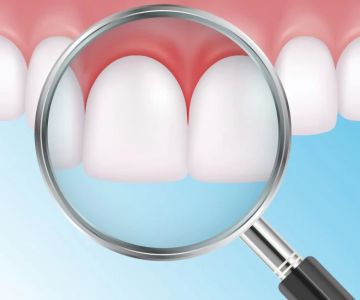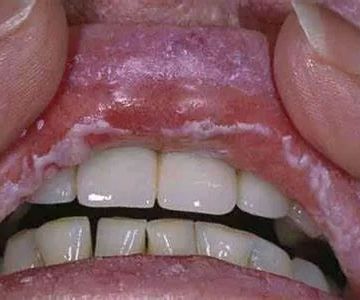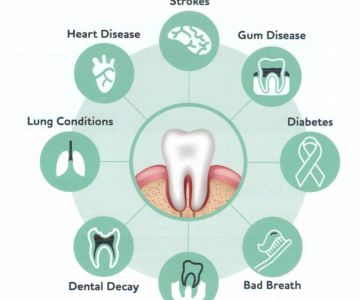The Critical Link Between Oral Health and Chronic Disease
Oral health is often overlooked when considering overall wellness, but emerging research underscores its profound impact on chronic diseases. Conditions such as diabetes, heart disease, and respiratory illnesses have been linked to poor oral hygiene and periodontal disease. For Americans managing chronic illnesses, understanding this connection is essential to optimizing health outcomes and improving quality of life.
Studies have shown that bacteria and inflammation from gum disease can enter the bloodstream, triggering systemic effects that exacerbate chronic health problems. This article explores the scientific basis of this relationship, practical prevention strategies, and compelling real-life examples.
1. How Gum Disease Influences Chronic Illness
Periodontal disease, a chronic inflammatory condition of the gums, creates an environment where harmful bacteria proliferate. These bacteria can infiltrate the bloodstream, increasing systemic inflammation and contributing to the development or worsening of chronic illnesses like cardiovascular disease and diabetes.
One landmark study published by the American Heart Association indicated that individuals with gum disease had a significantly higher risk of heart attack and stroke. This happens because the inflammation damages blood vessels and accelerates plaque buildup in arteries. Similarly, inflammation from oral infections can impair blood sugar control, making diabetes management more challenging.
2. Diabetes and Oral Health: A Two-Way Street
The relationship between diabetes and oral health is particularly intertwined. Diabetes increases the susceptibility to infections, including gum disease, while advanced periodontal disease can raise blood glucose levels and hinder diabetes control. This bidirectional link means that effective oral care is crucial for diabetic patients.
For example, Maria, a 52-year-old with type 2 diabetes, found that her blood sugar levels improved significantly after receiving comprehensive periodontal treatment and adopting strict oral hygiene practices. Her story illustrates how managing oral health can have ripple effects on chronic disease management.
3. Respiratory Diseases and Oral Bacteria
Oral bacteria can also impact respiratory health, especially in older adults or those with compromised immune systems. When harmful bacteria from the mouth are aspirated into the lungs, they can cause or worsen pneumonia and chronic obstructive pulmonary disease (COPD).
Preventing oral infections by maintaining good hygiene and regular dental visits plays an important role in reducing respiratory complications, particularly in vulnerable populations.
4. The Role of Inflammation in Linking Oral and Systemic Health
Chronic inflammation is a common factor in many systemic diseases and is often aggravated by poor oral health. Inflammation in the gums releases cytokines and other mediators into the bloodstream, which can disrupt normal bodily functions and promote disease progression.
Research highlights the importance of controlling oral inflammation through proper dental care to reduce the overall inflammatory burden on the body. This approach can support the prevention and management of chronic conditions beyond the oral cavity.
5. Practical Oral Hygiene Strategies to Protect Overall Health
Effective oral hygiene is a cornerstone of chronic disease prevention. Brushing twice daily with fluoride toothpaste, flossing regularly, and scheduling professional dental cleanings help reduce bacterial buildup and gum inflammation.
Advanced tools such as antimicrobial mouthwashes and electric toothbrushes may provide added benefits. Additionally, lifestyle factors like a balanced diet, quitting smoking, and managing stress further support oral and systemic health.
6. Real-Life Impact: Stories of Oral Health Improving Chronic Conditions
John, a 60-year-old man diagnosed with heart disease, experienced fewer cardiac events after addressing severe gum disease under his dentist’s care. His improved oral health helped lower systemic inflammation and complemented his medical treatment plan.
Such stories reinforce that oral health is an integral part of holistic chronic disease management and highlight the value of proactive dental care.
7. Accessing Expert Care and Resources
For individuals concerned about how oral health affects chronic disease, professional guidance is essential. Expert dentists and hygienists can tailor care plans, educate on preventive practices, and coordinate with medical providers to optimize health outcomes.
For trusted advice and specialized dental services, visit Dentistry Toothtruth, where personalized support helps you maintain a healthy mouth and a healthier body.







 Westgate Dental Arts3.0 (2 review)
Westgate Dental Arts3.0 (2 review) Coventry Family Dental4.0 (247 review)
Coventry Family Dental4.0 (247 review) Familia Dental3.0 (1028 review)
Familia Dental3.0 (1028 review) Dr. Daniel S. Fife, DDS4.0 (31 review)
Dr. Daniel S. Fife, DDS4.0 (31 review) Dentistry At Suburban Square: Michael I. Wollock, DMD4.0 (1228 review)
Dentistry At Suburban Square: Michael I. Wollock, DMD4.0 (1228 review) Comfort Care Dental4.0 (1156 review)
Comfort Care Dental4.0 (1156 review) The Importance of Oral Health Education During Pregnancy for a Healthy Pregnancy
The Importance of Oral Health Education During Pregnancy for a Healthy Pregnancy Why Skipping Dental Checkups Can Lead to Bigger Oral Health Problems
Why Skipping Dental Checkups Can Lead to Bigger Oral Health Problems Best Tips for Brushing Your Teeth Properly for Healthy Gums: Essential Techniques for Oral Health
Best Tips for Brushing Your Teeth Properly for Healthy Gums: Essential Techniques for Oral Health Advantages of Porcelain Dental Restorations
Advantages of Porcelain Dental Restorations How Can Diabetes Cause Tooth and Gum Problems? Preventing and Managing Oral Health Issues
How Can Diabetes Cause Tooth and Gum Problems? Preventing and Managing Oral Health Issues Healthy Habits for Promoting Good Oral Health and Hygiene: Tips for a Healthy Smile
Healthy Habits for Promoting Good Oral Health and Hygiene: Tips for a Healthy Smile